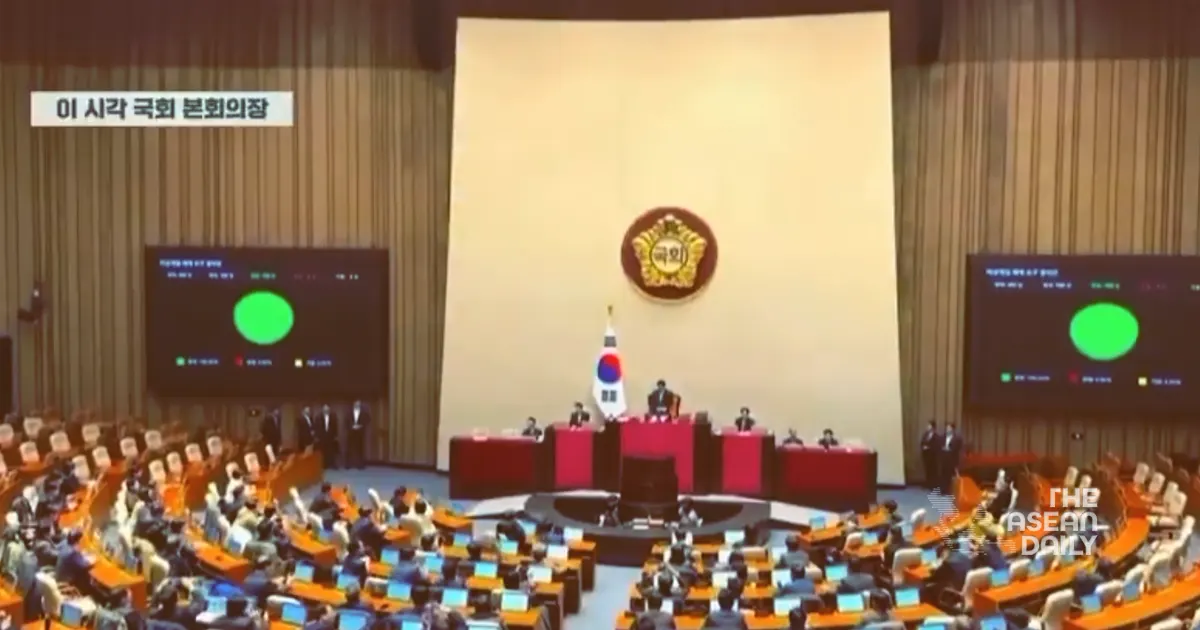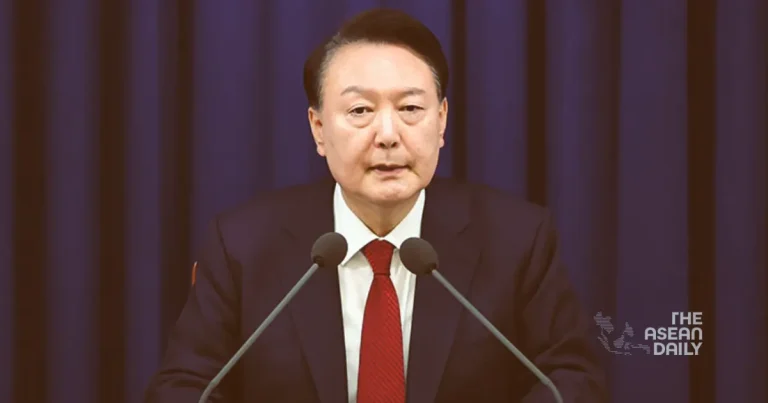4-12-2024 (SEOUL) President Yoon Suk Yeol reversed his controversial martial law declaration merely hours after its implementation in the early hours of Wednesday morning.
The extraordinary sequence of events began when Yoon declared martial law at 11 p.m. Tuesday, citing threats from what he termed “anti-state forces” threatening the nation’s democratic foundations. However, following swift opposition from the National Assembly and mounting international pressure, his Cabinet approved the termination of the emergency measures at 4:30 a.m. Wednesday.

“My resolute intent was to save the nation,” Yoon stated in defence of his initial declaration, though he acknowledged the National Assembly’s demands for its withdrawal. Military units mobilised under the brief period of martial law have since returned to their bases, according to the Joint Chiefs of Staff.

The political fallout has been immediate and severe. The opposition Rebuilding Korea Party has responded with fierce criticism, with its floor leader Hwang Un-ha announcing plans to pursue presidential impeachment proceedings. Hwang particularly condemned the deployment of military personnel during the brief period of martial law.
WATCH: Soldiers arrive at South Korea’s parliament after president declares martial law pic.twitter.com/cZX4vsM34y
— BNO News (@BNONews) December 3, 2024
The crisis has drawn attention from key allies, notably the United States. Speaking at a public forum, U.S. Deputy Secretary of State Kurt Campbell expressed “grave concern” over the developments. Whilst reaffirming the “ironclad” nature of the U.S.-South Korea alliance, Campbell emphasised Washington’s expectation that any political disputes would be resolved through peaceful, legal channels.
President Yoon, maintaining his defensive stance, urged the National Assembly to cease what he described as “outrageous” activities that he claims are hampering governmental functions, including attempts to impeach government officials.
The unprecedented episode marks one of the most significant political crises in recent South Korean history, raising questions about democratic stability in one of Asia’s most robust democracies.




